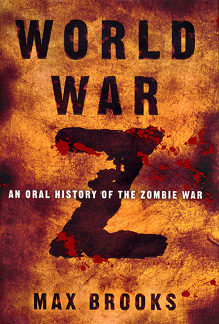 Witch and Wizard, by James Patterson and a second author in smaller print, is about a witch and a wizard. Their names are Wisteria and Whitford Allgood, but they usually go by Wisty and Whit. Yes, they are really the All-good family.
Witch and Wizard, by James Patterson and a second author in smaller print, is about a witch and a wizard. Their names are Wisteria and Whitford Allgood, but they usually go by Wisty and Whit. Yes, they are really the All-good family.Unfortunately for them, "the country" has elected some fellows called the New Order into power, and in "a few months" the New Order has completely destroyed "the old government" and instituted a council to rule over the new authoritarian state and also they've convinced everyone that not only does magic exist but also that it's evil and that it's okay to do terrible things to children and also the Allgoods are the last nice parents on Earth and everyone else is just sorta fine with it except for kids so the New Order just kills children by the hundreds and did I mention EVERYONE IS FINE WITH IT and also there are apparently no countries other than "the country" because everyone is either in the New Order or in the resistance as clearly marked in the map and also the world is flat I guess and there are no oceans but there's also four other levels of reality because why not?
So, yeah, it's set in an alternate reality where that somehow makes sense.
Anyways, Wisty and Whit have somehow missed the fact that the GOVERNMENT IS GONE AND EVERYONE IS EVIL sorry I need a little time to adjust to this premise.
[time passes]
So, Wisty and Whit were not informed about the new government, nor about the existence of magic, nor about the fact that magic is illegal and morally reprehensible. They are then completely surprised when they are arrested by the New Order for the charge of being a witch and a wizard, respectively. They are even more surprised when they start developing magical powers, such as seeing ghosts and being on fire. Slightly less surprising is that they are sentenced to death. Now, Wisty and Whit have to use their magic to escape the torture-prison and find their parents.
The review so far has been a bit ranty, so I feel like I should clarify: I really liked Witch & Wizard. It is fun, and easy to read, and it moves at an incredibly fast pace. The good characters are all likable, and the evil characters are all cartoonishly evil. I'm also okay with the ridiculous setting, because it just emphasizes the whole silly good-vs-bad fun of the story.
So, read this book if you like fast-paced action and fun. Try to ignore my little rant. Honestly, I just made it for fun.

